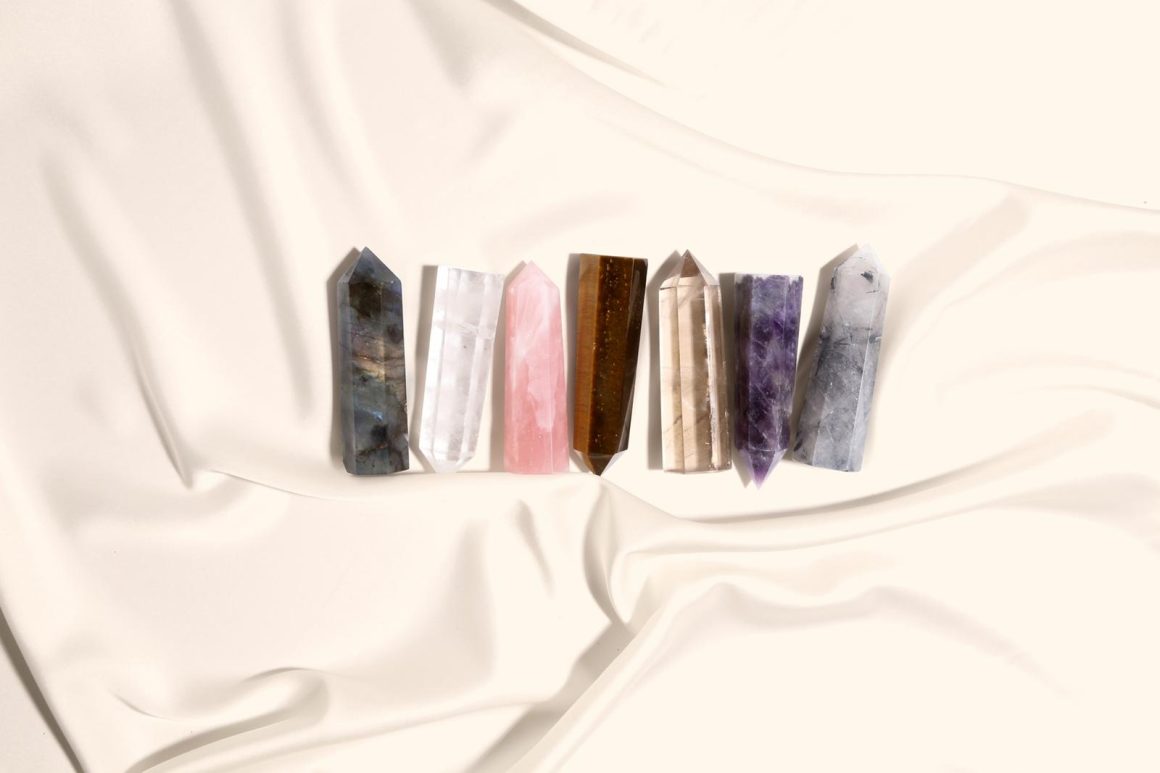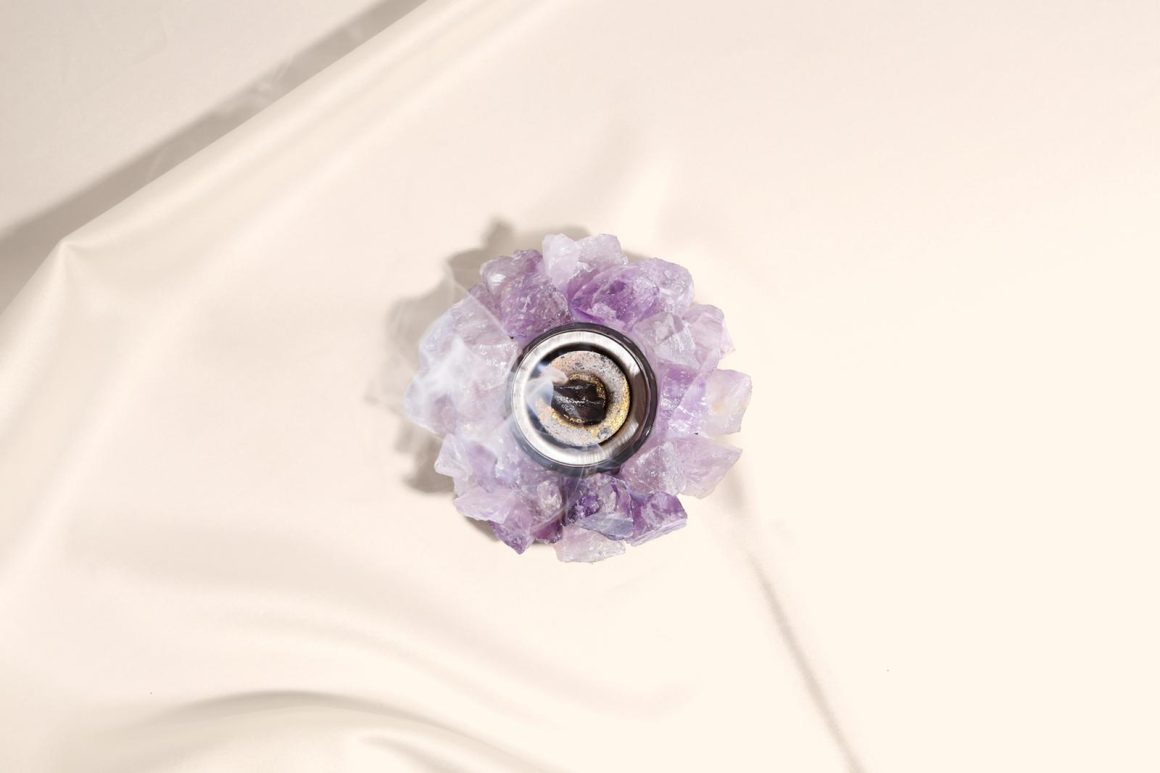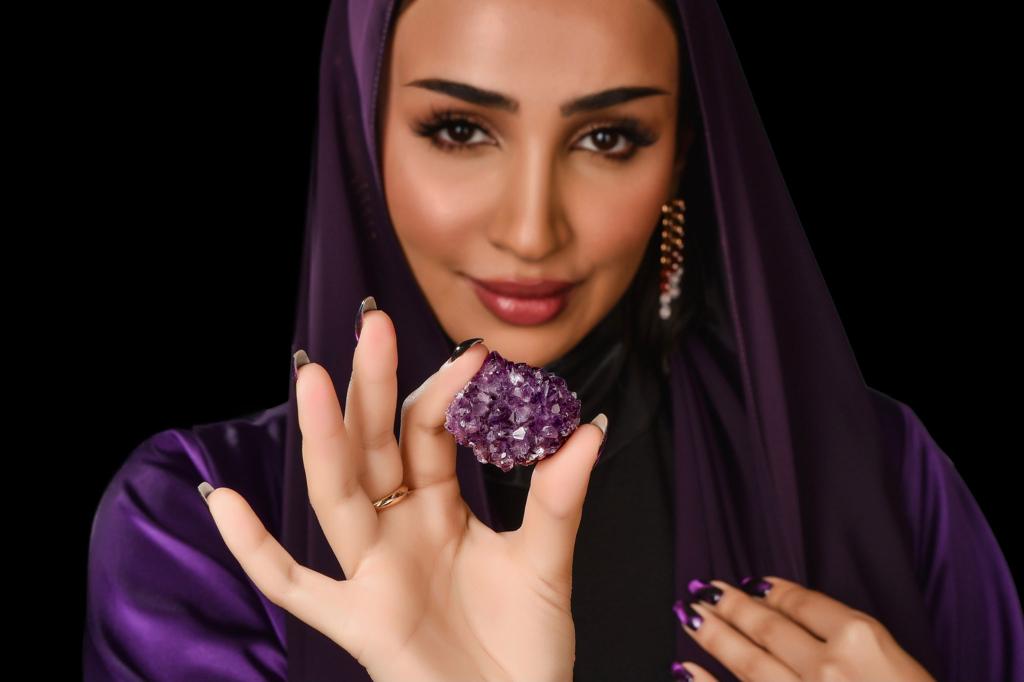For International Women’s Day, Doha News spoke to a young Qatari woman who began with a dream in her living room and ended up being one of the few to shelf sparkling crystals in the country.
As crystals grow more popular and rise in demand, a local business owner has jumped on the opportunity to share some of the fine minerals with her community and become one of the few to integrate the rocks into the local market.
The tangible dream for Hamda Al Suwaidi, Designer and CEO of CRYSTALS, was birthed in her living room and turned into a reality when she decided to open a business and attach price tags to nature’s gifts, which she described as “little love letters from mother nature to us.”
Driven by her curiosity, Hamda began this business with a unique eye for the makeup of these minerals.
“What fascinates me the most about crystals is the science behind them. Crystals have a unique intermolecular structure that is organised in a consistent manner called crystalline. Crystals are creations of God that happen when hot magma cools. The process can take a few days to millions of years,” Hamda told Doha News.
Energy or pretty?
There has been a long debate over the use of these minerals and whether or not they carry certain energies.
A widespread but unchecked notion holds that crystals have an affect on the body’s energy fields, also referred to as vibrational energy. With their distinctive energetic frequencies, crystals are said to be able to reroute and re-channel energy flow, assisting in clearing blocked or “stuck” parts of the body or energy field, according to reports.

However, many also hold that crystal healing is a pseudoscience as there is no peer-reviewed scientific data to support its efficacy. The placebo effect may be to blame for claimed achievements of crystal healing.
Though, regardless of the views that encircle the minerals, the owner of Qatar-based CRYSTALS said the beauty of crystals is captivating enough.
“Some people believe because their energetic field is so organised, it effects our energetic field as humans. Even if you don’t believe in the energetic value of these special minerals, they’re still cool to look at,” Hamda told Doha News.
Gemstones in Arab culture
Precious stones, or ‘احجار كريمة’ have been significantly prevalent in Arab culture and are historically used by Muslims. Many followers of the faith are of the opinion that Prophet Muhammad (PBUH) wore at least one gem-encrusted ring.
The Holy Quran makes note of certain gems, specifically in Surat Al-Rahman containing the verse: “Out of them came out the Pearl and Coral [Holy Quran 55:22].”
Gemstones play an important role in Islam. Al-Hajar Al-Aswad, also known as the Black Stone, is one such instance. It is located close to the Kabah and is enthusiastically kissed and caressed by Muslims visiting the holy city of Makkah.
According to Hadiths, the Prophet wore an Aqeeq stone (also known as Agate) on his ring.
“Crystals and other gemstones have been adorned for millennias, especially by us Arabs,” Hamda said.
“The Prophet (PBUH) famously wore an aqeeq (agate) ring to stamp seal his letters.
They’ve been adorned for centuries and were even status symbols in the medieval Arab times, people often gifted them to each other as signs of respect.”
Separately, Hamda has also integrated her Arab background within her line of work as it is important for her to embolden that aspect of her identity. Part of her collection includes ‘mudkhan’ (traditional Oud burner).

Highly evident in Arab culture, mudkhans have long been used to burn the scented oud or agarwood, which releases a fragrant smoke.
What does the community think?
Due to the multilayered debate surrounding these stones, different communities react differently to such minerals, however Hamda has reminded that crystals can also solely be appreciated for their beauty.
“I’m proud to say our business has only reached where it is at because of all of the love we’ve received,” she expressed.
“The warmest thing to my heart is when I see children run up to our stall when we participate in pop ups screaming ‘this is an amethyst!’ or ‘this is a rose quartz.’ It makes my heart full to share my passion with the community.”
Women in the local business market
Increasingly more young businesswomen are seen picking up the momentum of starting home businesses and even branching out to appear in pop-ups to attract customers. Upon taking a stroll through local markets in Qatar, stalls are seen being progressively ran by young women.
Speaking from experience, Hamda offered advice: “Woman should have a solid business plan and most importantly choose something they’re curious about and let their passion guide their way.”
“We have many privileges in Qatar that help exercise our creativity and be unique in our ventures.”
“Being a woman anywhere in this day and age is difficult,” Hamda told Doha News.
“But there’s nothing like a woman’s intuition. Use it to your advantage and call your energy back to yourself. Understand who is on your team and who is being constructive because they want to genuinely help you or who wants to be destructive because they have ill intentions.”
Adding to that advice, the young business-owner said: “Believe in yourself, guide yourself and ground yourself because nothings impossible. Regardless if the market is welcome or not, it’s difficult starting something new.
Acknowledging the fertile soil of the Gulf nation, Hamda said: “We are fortunate to be living in Qatar and have many privileges we are able to utilise to give back to our beautiful country.”







